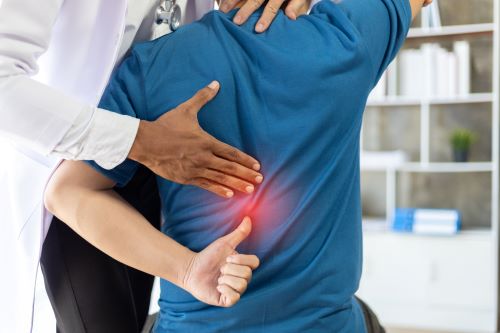Head injuries can be a concussion, mild head injuries, or a traumatic brain injury, each with their own symptoms and complications. Knowing the signs of a head injury early makes all the difference in treatment. Whether it’s a sports injury, an accident or just a fall, knowing what to look for can matter. If you have a head injury our team at our Atlanta medical clinic can get you back to health.
In this post, we will cover head injury symptoms, why immediate medical attention is important and how to tell the difference between mild and severe.
Head Injury Definition and Causes
Head injuries, often referred to as traumatic brain injuries (TBIs), are brain injuries caused by an external force, such as a blow or jolt to the head. They can be categorized by severity and mechanism of injury.
Types of Head Injuries
- Penetrating TBI: This is when an object pierces the skull and enters the brain tissue. These are often the result of violent incidents like gunshot wounds or stabbing.
- Non-Penetrating TBI: Also known as blunt TBIs, these are when the skull is not penetrated. These are typically the result of a blow to the head. Examples are concussions from falls or sports injuries where the skull remains intact. Mild traumatic brain injury, a type of non-penetrating TBI, typically results from a forceful impact to the head or body and may have temporary effects on brain cells, unlike more severe injuries that can lead to significant physical damage and long-term complications.
Causes of Head Injuries
Head injuries can occur from:
- Falls: One of the most common, especially in older adults and young children. Falls can cause mild traumatic brain injuries or more severe TBIs depending on the height and impact.
- Vehicle Accidents: Car wrecks are a big cause of head injuries. The sudden stop or collision can cause the brain to hit the inside of the skull and cause concussions or more severe brain injuries.
- Sports Injuries: Contact sports like football, soccer and boxing have a high risk of head injuries. Even with protective gear athletes can get concussions or more severe TBIs.
- Violence: Assaults, domestic violence and other violent acts can cause severe head injuries. These can range from mild concussions to life threatening brain injuries.
- Shaken Baby Syndrome: When an infant is shaken violently the brain moves inside the skull. This can cause severe brain damage or death.
It is crucial to seek medical care for any signs of serious injury following trauma to the head or body.
Head Injury Symptoms
Knowing head injury symptoms is important for fast treatment. Symptoms vary based on the severity of the injury and can be mild or moderate to severe.
Mild Traumatic Brain Injury
Mild head injury, also known as mild traumatic brain injury, may have:
- Headache: A headache that persists or recurs.
- Nausea or Vomiting: Feeling sick or vomiting shortly after the injury.
- Fatigue or Drowsiness: Feeling unusually tired or sleepy.
- Confusion or Disorientation: Trouble thinking clearly or feeling “out of it.”
- Sensory Problems: Blurred vision, ringing in the ears or sensitivity to light and sound.
- Mood Swings or Emotional Changes: Noticeable change in behavior, irritability or sadness.
Moderate to Severe
More severe head injuries, often classified as moderate or severe TBI, show more obvious head injury symptoms:
- Loss of Consciousness: From a few minutes to several hours.
- Persistent Headache or Worsening Vomiting: A headache that won’t go away or gets worse and vomiting continues.
- Convulsions or Seizures: Uncontrolled shaking or seizures.
- Clear Fluids from Nose or Ears: Fluid leaking from the nose or ears which may be cerebrospinal fluid.
- Unable to Wake from Sleep: Difficulty waking up or staying awake.
- Weakness or Numbness in Extremities: Loss of strength or sensation in the arms or legs.
- Loss of Coordination: Trouble with balance or movement.
Head Injury Symptoms in Children and Shaken Baby Syndrome
Children may show different head injury symptoms than adults:
- Changes in Eating or Sleeping Habits: Changes in how they eat or sleep.
- Irritability or Persistent Crying: Fussiness or crying that won’t stop.
- Changes in Attention or Behavior: Changes in attention span or behavior.
- Drowsiness or Lack of Interest in Activities: Tiredness or disinterest in play.
- Seizures: Shaking or convulsions.
It is important to differentiate a minor head injury from more severe head injuries in children. Recognize these head injury symptoms early and get medical attention if any of these symptoms occur after a head injury.
Secondary Injuries
Secondary injuries can make the initial head injury worse. These injuries develop over time and if not treated promptly can lead to severe complications. Severe traumatic brain injury can lead to significant alterations in a person’s state of consciousness, with potential long-term effects on awareness and responsiveness resulting from widespread brain damage. Here are some secondary injuries associated with head injuries:
- Bleeding into the brain (intracerebral hematoma): When blood vessels in the brain rupture and blood pools in the brain tissue. This increases pressure in the skull and causes further brain damage.
- Fluid buildup in the brain (edema): Swelling or edema can occur after a traumatic brain injury. Cerebrospinal fluid buildup creates pressure that can damage brain cells and impair brain function.
- Blood clots or bleeding in the brain: Blood clots or hematomas can form anywhere in the brain after injury. They can block the flow of oxygen and nutrients and cause further brain tissue damage.
- Skull fractures: A fracture can cause bone fragments to press into brain tissue causing additional injury. Skull fractures can also create pathways for bacteria to enter and increase the risk of infection.
Identify these secondary injuries. Head injury symptoms like sudden severe headache, changes in behavior or new neurological deficits may be a secondary injury. Get medical attention right away to manage these and prevent permanent brain damage. Regular checkups with your healthcare provider are important to catch and treat any complications from the head injury.
Head Injury Complications
Head injuries especially TBI can have many complications that can affect your daily life. It is crucial to recognize signs of a serious head injury that may develop later. These can vary depending on the severity and location of the injury.
Post-Traumatic Headaches and Vertigo
After a head injury headaches are common. These can be mild to severe and can last for weeks or even months. Vertigo, a feeling of spinning or dizziness is another common issue that can affect daily activities.
Post-Concussive Syndrome
Post-concussive syndrome is a condition where symptoms like headaches, dizziness and cognitive difficulties persist long after the injury. This can last for weeks or months and needs to be managed carefully.
Long-Term Brain Damage or Disability
Severe TBIs can cause long-term brain damage or permanent disability. This can be cognitive impairment, memory loss or changes in emotional and behavioral patterns. In some cases, individuals may experience speech difficulties and reduced motor function.
Increased Risk of Future Concussions
Once you have had a TBI you are at higher risk for future concussions. This is especially true for athletes and individuals involved in high risk activities. Repeated head injuries can lead to chronic traumatic encephalopathy (CTE) a progressive brain disease.
Head Injury Diagnosis and Treatment
Diagnosing brain injuries is key to treatment. The Glasgow Coma Scale (GCS) is used to assess the level of consciousness in patients with traumatic brain injuries (TBI). This scale scores eye, verbal and motor responses to determine the severity of the injury and guide treatment.
Imaging Tests
Imaging tests like CT and MRI are important tools to identify brain injuries. These tests can show brain bleeding, swelling and damage to brain tissue. They also monitor brain function over time to catch any changes early.
Neuropsychological Tests
Neuropsychological tests are another part of diagnosing TBIs. These tests evaluate cognitive functions like memory, attention and problem solving skills. The results will help healthcare providers plan rehabilitation strategies specific to the patient’s needs.
Treatment
Treatment for brain injuries depends on severity and location of the injury. Medication is often given to manage head injury symptoms like pain, swelling and seizures. In severe cases surgery may be needed to relieve pressure inside the skull, remove blood clots or repair skull fractures.
Rehabilitation Therapies
Rehabilitation therapies are key to the recovery process. Physical therapy helps patients regain motor skills and coordination. Occupational therapy helps with daily living activities. Speech therapy helps those with communication difficulties. Cognitive therapy helps restore memory and thinking skills.
Visit Our Atlanta Medical Clinic Today!
Knowing the head injury symptoms is important for timely and proper treatment. If you or someone you know has head injury symptoms such as loss of consciousness, severe headache, repeated vomiting or worsening symptoms, seek medical attention immediately and trust our team at Georgia Spine and Orthopaedics to help you.
Schedule an appointment with us today at 678-929-4494!






